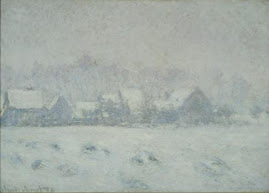
Ok, this might sound like a bit of a pain, but i cannot get this video to embed so that you can watch it on this blog. Meeg will attest to the fact that it is uber-cool and that you MUST watch it (it's about 2 mins long, tops). click on the link, then in the upper right hand corner you'll see a link to a video. click that and watch it. it is hugh macdiarmid reciting part of one of his trilogy of poems, 'hymns to lenin' while he walks along the edge of a wall. it's very odd and very cool.
http://www.luxonline.org.uk/artists/margaret_tait/hugh_macdiarmid-_a_portrait.html
read the post and then go back and watch the video. i promise that you won't regret it.
Hugh MacDiarmid was born Christopher Murray Grieve, in the Scottish border town of Langholm in 1892. MacDiarmid was interested by developments in contemporary poetry and literature in Scotland (as well as in Europe and Russia) and began to publish a poetry anthology entitled Northern Numbers as well as a literary magazine, Scottish Chapbook, which had as its motto 'Not traditions - Precedents!'’ MacDiarmid was also writing poetry and his first collection, Sangshaw, was published in 1925 with his major work, A Drunk Man Looks at the Thistle, appearing the following year.
Like many Scottish writers of the early twentieth century, MacDiarmid was fiercely political, and a strong believer in socialism. He felt deeply that Scottish life and culture was ill-served by its political position and, in 1928, was a founding member of the National Party of Scotland - today's SNP. In later years his political stance shifted towards Communism, and, in 1964, he stood as Communist Party candidate against the then Prime Minister, Sir Alex Douglas-Home.
MacDiarmid spent much of the 1930s cut off from mainland cultural developments on the Shetland island of Whalsay, but he continued to write ground-breaking and stylistically innovative poetry, as well as extensive journalism in which he explained his vision for a Scottish renaissance that was both cultural and political. Central to this vision was his belief that the Scottish psyche could not be adequately expressed in the English language alone, and that to develop and write in a synthetic Scots was the only way to achieve a coherent national voice. This was complimented in the 1930s and 1940s when he emphasised the significance of the Gaelic language in Scottish literature and life. His later poetry engages a plurality of voices, languages and forms of expression.
In his later years, MacDiarmid's outlook became increasingly internationalist and the slow but steady growth of his literary reputation allowed him to travel abroad, including visits to the USSR and China. Although he is now recognised as the principle force of the Scottish Literary Renaissance, financial success eluded him for most of his life and his last 27 years were spent living with his second wife Valda at Brownsbank, a cottage (with little in the way of comfort) near Biggar. MacDiarmid died in 1978 and the cottage is now run as a museum and writers' centre.
THESE lines, from Hugh MacDiarmid’s epic poem of 1926, A Drunk Man Looks at the Thistle, appear on the poet’s tombstone in the cemetery of Langholm
I’ll ha’e nae hauf-way hoose, but aye be whaur
Extremes meet – it’s the only way I ken
To dodge the curst conceit o’ bein’ richt
That damns the vast majority o’ men.
(Translated-
I'll have no half-way house, but always be where
Extremes meet- it's the only way I know
To dodge the cursed conceit of being right
That damns the vast majority of men.
here, MacDiarmid has taken this idea from Dostoevski- it means that he lives in extremities, he doesn't make due with the status-quo or settle into a niche of what is conceived to be correct. as soon as you begin to except so-called maxims, you cease to think for yourself and individuality begins to die.
example of his tremendous work (with english translation)
‘The Bonnie Broukit Bairn’
Mars is braw in crammasy,
Venus in a green silk goun,
The auld mune shak’s her gowden feathers,
Their starry talk’s a wheen o’ blethers,
Nane for thee a thochtie sparin’,
Earth, thou bonnie broukit bairn !-
But greet, an’ in your tears ye’ll droun
The haill clanjamfrie !"
In English-
Mars is handsome in crimson
Venus in a green silk gown
The old moon shakes her golden feathers
Their starry talk’s a pack of nonsense
None of them give a thought to you
Earth, you beautiful neglected child
But weep, and in your tears you’ll drown
The whole shooting-match






1 comment:
would love to exchange links with you, please contact me
Post a Comment